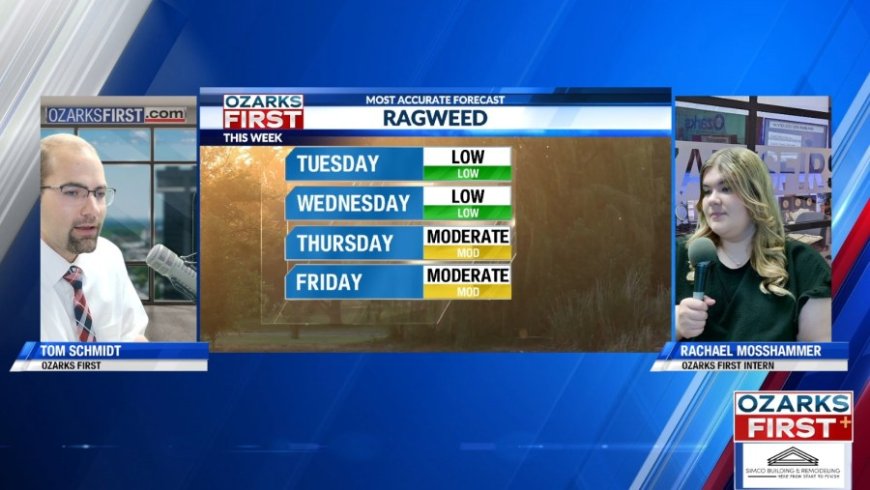August allergy season in the Ozarks: How weather is stirring up ragweed
August is a month synonymous with hot, sunny, and dry weather, but August also brings a secondary peak in allergy season. Sneezing, itchy eyes, and congestion return in an unmistakable allergy fit. This is because the weather in August is favorable towards ragweed pollen. Common ragweed is native to Missouri and is often regarded as [...]

August is a month synonymous with hot, sunny, and dry weather, but August also brings a secondary peak in allergy season. Sneezing, itchy eyes, and congestion return in an unmistakable allergy fit. This is because the weather in August is favorable towards ragweed pollen.
Common ragweed is native to Missouri and is often regarded as a nuisance in pastureland. Cattle and most other livestock avoid the plant because it can lead to nausea. It can also be a problem in Soybean fields, with some strains of ragweed now resistant to glyphosate-containing herbicides.
The weather in August is ideal for ragweed pollen to let loose. High heat, plentiful sunshine, and extended dry periods make great growing conditions for ragweed.
The ragweed count as of August 5 is low, but it is expected to climb into the moderate to high category later in the week. This is thanks to sunny, hot, and dry days.
There are some steps you can take to lower the impact of your ragweed allergies. Research from the American College of Allergy, Asthma, and Immunology determined that the pollen count is highest between 2 PM and 9 PM. Morning coffee outdoors is safe, but according to this study, dinner on the patio may be less pleasant.
After being outdoors, you can rinse off in the shower or wash your face to remove any pollen from your eyes. High-efficiency particulate air cleaners (HEPA filters) and a high-efficiency filter in your HVAC system can also reduce the amount of pollen in your home.
As we move through August and September, allergy season's second wind will continue to ramp up before winding down following the first frost in October. In the meantime, the combination of hot, dry, and sunny days will keep bringing challenges to allergy sufferers.
What's Your Reaction?





















